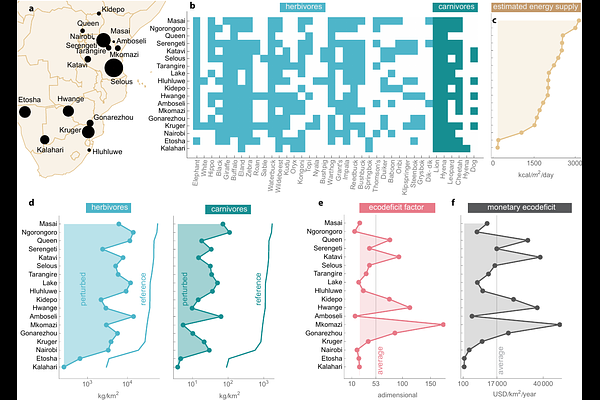Quantifying ecosystem degradation via energetic deficits

Quantifying ecosystem degradation via energetic deficits
Angulo, M. T.; Liu, Y.; Morris, D.; Saavedra, S.
AbstractEcosystem degradation is accelerating, threatening biodiversity and human economies. Quantifying this degradation relative to a reference baseline remains a key challenge. Yet, this quantification is essential to provide the necessary resources to regenerate ecosystems. We address this challenge by studying the energetics of population dynamics, where energy inputs such as sunlight and rainfall are transformed into other forms of energy embodied as biomass. This approach provides a unifying framework to quantify degradation across diverse ecosystems via the energetic ecodeficit: the extra energy supply the degraded ecosystem would require to regenerate to a reference state. This energetic deficit can then be translated into a monetary ecodeficit, representing the economic cost of regeneration, considering the local cost of embodied energy. Our analysis reveals nonlinear relationships between biomass loss and energetic ecodeficit, including points of no return beyond which restoration becomes economically infeasible. We showcase our methodology using the current mammal deficits across the African savanna, finding that the monetary ecodefict is about 100 times larger than current estimates. Our work demonstrates how integrating energetic principles into conservation planning can transform ecosystem valuation globally, linking ecosystems and economies sustainably.